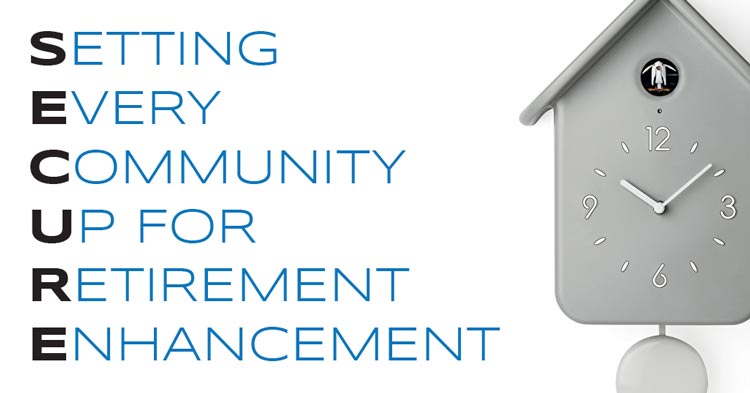High Swartz estate planning attorneys down and explains the highlights and how they can affect your retirement plans.
What is the SECURE Act?
The SECURE Act (Setting Every Community Up for Retirement Enhancement) is a bill designed to help Americans improve their ability to save for retirement. Currently, many financial analysts say that America is having a retirement savings crisis. The SECURE act was created to:
Make Retirement Plan Enrollment Easier for Everyone
The SECURE Act can now make it easier for small businesses to set up and enroll employees in 401(k) plans. The government will now provide a max tax credit of $500 per year to employers who open up a 401(k) or SIMPLE IRA plan with auto-enrollment for employees. If employees are enrolled they can now contribute up to 15% of their pay to said plan.
Include Part-Time Employees
Part-time employees are now eligible to sign up for 401(k) plans if they meet the yearly hourly quota of 1,000 hours or 3 consecutive years of 500+ hours. Before, if you worked under 1,000 hours a year, you typically were ineligible to participate. Now, if you work at least 500 hours a year with an employer for at least 3 consecutive years, and are at least 21 years of age by the end of the third consecutive year, you are eligible to participate in your company’s 401(k) plan.
Defer Distributions
The SECURE Act also pushes back the age from 70.5 to 72 to take RMDs (Required Minimum Distributions). If you were born after June 30, 1949, you must begin taking distributions on April 1st following your 72nd birthday. If you were born before June 30, 1949, you are still required to start taking distributions at age 70 ½.
If you have an Eligible Designated Beneficiary, distributions are generally allowed to be paid over the EDB’s life expectancy. An EDB can be your spouse, your child under the age of majority (typically 21, but it could be 18, 21 or 26- The term isn’t defined and PA state law has 3 definitions, which of course are different than the definition under the I.R.C.); a disabled/chronically ill beneficiary or beneficiaries who are less than 10 years younger than the original IRA owner or 401(k) participant. However, this only applies to the current beneficiary. The successor beneficiary of the inherited retirement plan will be subject to the 10-year payout.
If you were born after June 30, 1949, you must begin taking distributions on April 1st following your 72nd birthday. If you die before your required begin date and do not have a designated beneficiary, the rule remains the same and the plan must be withdrawn within 5 years. If you are over 70 ½, working and earning income, now you can still make contributions to your traditional IRA. (Translation, you can keep working well past retirement age.)
Adding a new member of the family
The SECURE Act also can defray the cost of having or adopting a child. It allows penalty-free withdrawals of up to $5,000 (per parent), within one year of birth or final adoption decree, for qualified expenses from 401(k) accounts.
Employers should consult with their tax and legal professionals to find out more about how they are affected by the SECURE Act. The information listed above is only a small portion of the effects seen by the Act.
If you need assistance planning your estate make sure you talk with an estate planning attorney near you in Montgomery or Bucks Counties.
The information above is general: we recommend that you consult an attorney regarding your specific circumstances. The content of this information is not meant to be considered as legal advice or a substitute for legal representation.
